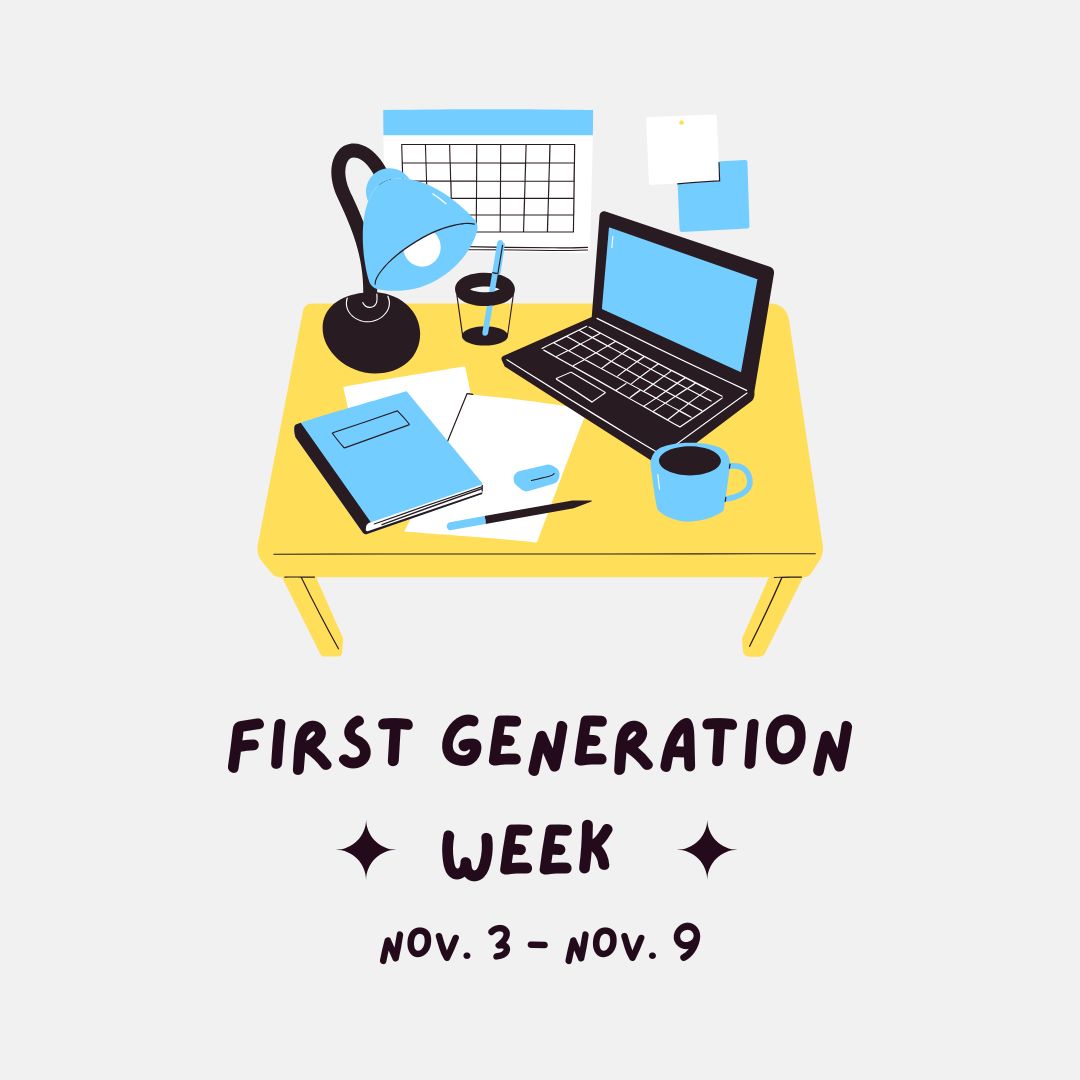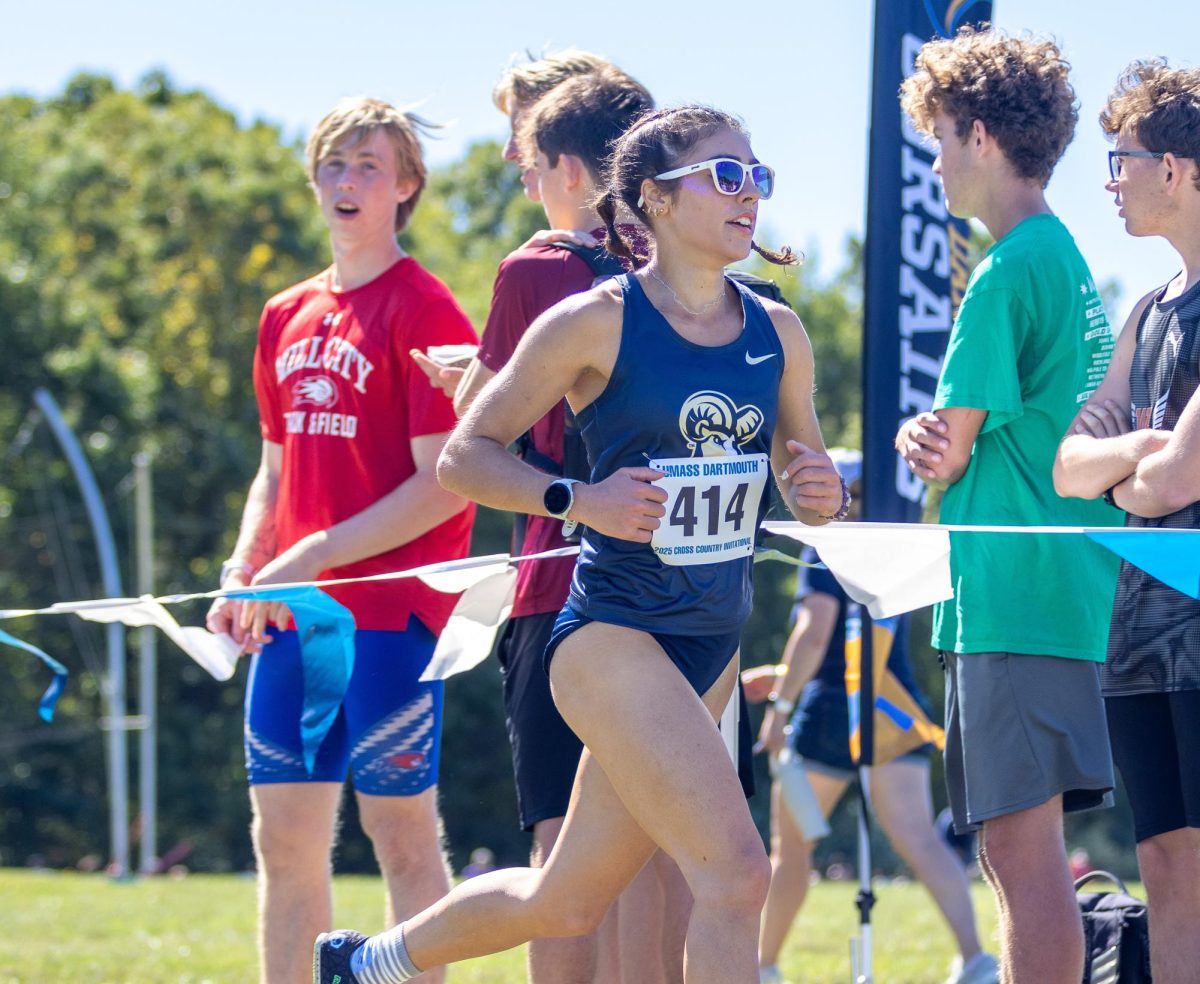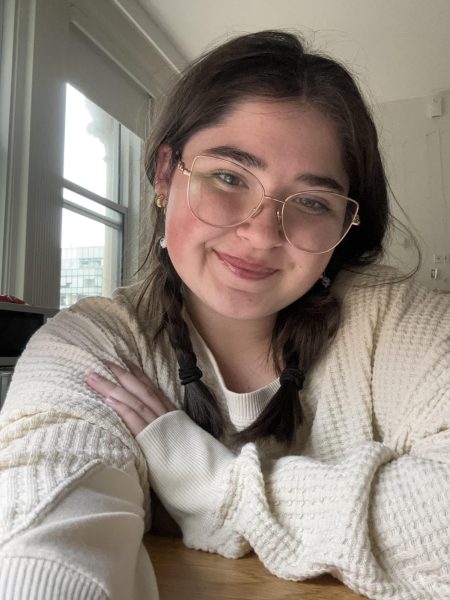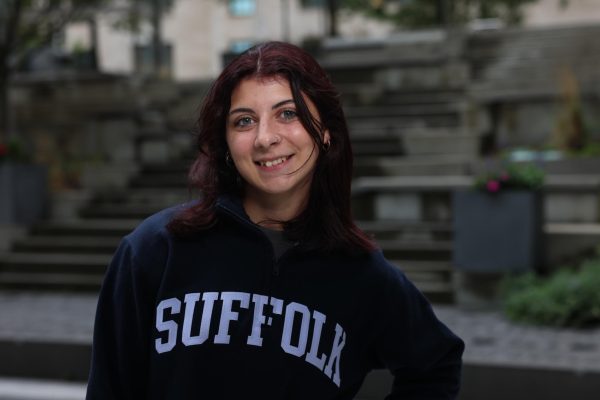The eighth annual First-Gen Week began Nov. 1 with their monthly First-Gen Fridays, but with some additional flair that gives Suffolk students a glimpse into what to expect for the rest of the week-long celebration.
To kick the event off, the Center for First-Generation & Educational Equity hosted their monthly First-Gen Friday with some First-Gen Week fun.
There were piles of shirts, tote bags, lanyards and pins – all free and heavily encouraged for students to take. Food was provided along with energetic music.
The staff members’ energy and excitement were running high with the kick-off of First-Gen Week. Each student was greeted with enthusiasm and were welcomed, whether they knew them or not.
First-Gen Fridays are nearly two years old, having been started in spring 2023, every first Friday of the month. This event is open to not only students, but also staff and faculty who identify as first-generation. It is a casual way for students to connect with the center as well as other first generation students and faculty.
Madison Pimental was a first-generation student and is now a staff member at Suffolk Cares. She sees herself as a cycle breaker, since she is the first in her family to graduate high school, let alone go to college.
Her grandparents are immigrants, another part of her identity that she notes as important to her. Pimental sees her first-generation status as a way to prove that she, and anyone else, can do it and highlighting the importance of education.
“First-gen identity isn’t one that people think of right away and I think it has a lot of layers to do with class and race, too,” said Pimental. “I think it’s really great to have a whole week celebrating that unique identity and all of the students and folks who compose that identity.”
Additionally, this First Gen Week marks the second year of Tri Alpha, a honors society for first generation students. Dr. Kelsey Stocker, a chemistry and biochemistry professor, is the faculty member that was a part of the creation of Tri Alpha at Suffolk.
Tri Alpha was created last year and is still being actively built and worked on, most notably by the students involved. Stocker said the program is still very new and working to figure out what Suffolk students need it to be.
“Sky’s the limit in terms of the program,” said Stocker. “We are still talking with our E-board, talking to our new members.”
The students involved with the program are catering it to their needs and what they foresee being other Suffolk first-generation students needs.
Stocker said it was important the program was formed by first-gen students, as they know what they need better than anyone else. Despite having been a first-generation student herself, Stocker noted that the needs of these students have changed over the years.
Hindsight was something that Stocker had learned to appreciate in her time as a first generation student. She refers to it as being “like watching a pinball machine from up above,” finally able to see all the moving parts now that she has grown and is working in higher education.
“That’s kind of one of the superpowers of being a first-gen student is you kind of don’t necessarily know the things you should be worried about,” said Stocker, in reference to her beginning years of college.
She attributes most of her success to her excitement and the support of her parents, pushing through the unknown fueled by her perseverance.
At Suffolk University, there are three main departments within the Center for First-Generation & Educational Equity. The McNair Scholars are undergraduate first-generation students who go through a research and graduate school preparatory program as a way to provide them the tools to not only get into grad school but also succeed. There are two Upward Bound programs; one for high school students to help them prepare for college and another to help veterans, people coming to get a degree after joining the workforce.
Suffolk hosts three of eight TRIO programs currently available. TRIO are federally funded programs through the Department of Education, which typically support first-generation, low income and historically underrepresented students.
The programs support three different groups of people, hence the name TRIO. These groups are usually divided into high schoolers, current college students and veterans. Veterans are people who have outside life experience before attending college to get a degree.
Ashley Booker is the project specialist for TRIO, specifically the Upwards Bound veteran program. Working with TRIO has been an eye-opening experience for Booker. Most notably, she’s learned that she was also considered first-generation.
“I think it’s a pivotal week for all college students,” said Booker. “It’s just a great honor to be able to celebrate first-generation college students and just have a week set out just for them.”
Additionally, since she works with the veterans, she has noticed that they come with unique circumstances that have to be handled differently than you would with a high schooler or college student. Though, that does little to diminish Booker’s excitement for the events that are to come with First-Gen Week.
Many of the staff involved with First-Gen Week could not help but share their excitement for one event in particular: the TRIO Decades Dance that will be hosted in Keches room from 6 p.m. to 8 p.m. Friday, Nov. 8.
Not only will there be a DJ, a photo booth and a make-your-own boba stand, but this dance is also to celebrate the history behind the TRIO program. There will be photos and historical facts, set out to show how far TRIO has come as a program. The day of the dance marks 60 years of TRIO, a momentous occasion deserving of such a celebration.
First-Gen Week continues on with various events from Nov. 4 through Nov. 8.
Upcoming events include a student panel and Networking Dinner Nov. 6. Nov. 7 brings around an informative session on study abroad opportunities for first-generation students as well as Tri-Alpha’s induction ceremony. To finish the week, there will be TRIO and first-gen history trivia as well as the TRIO Decades Dance.






















